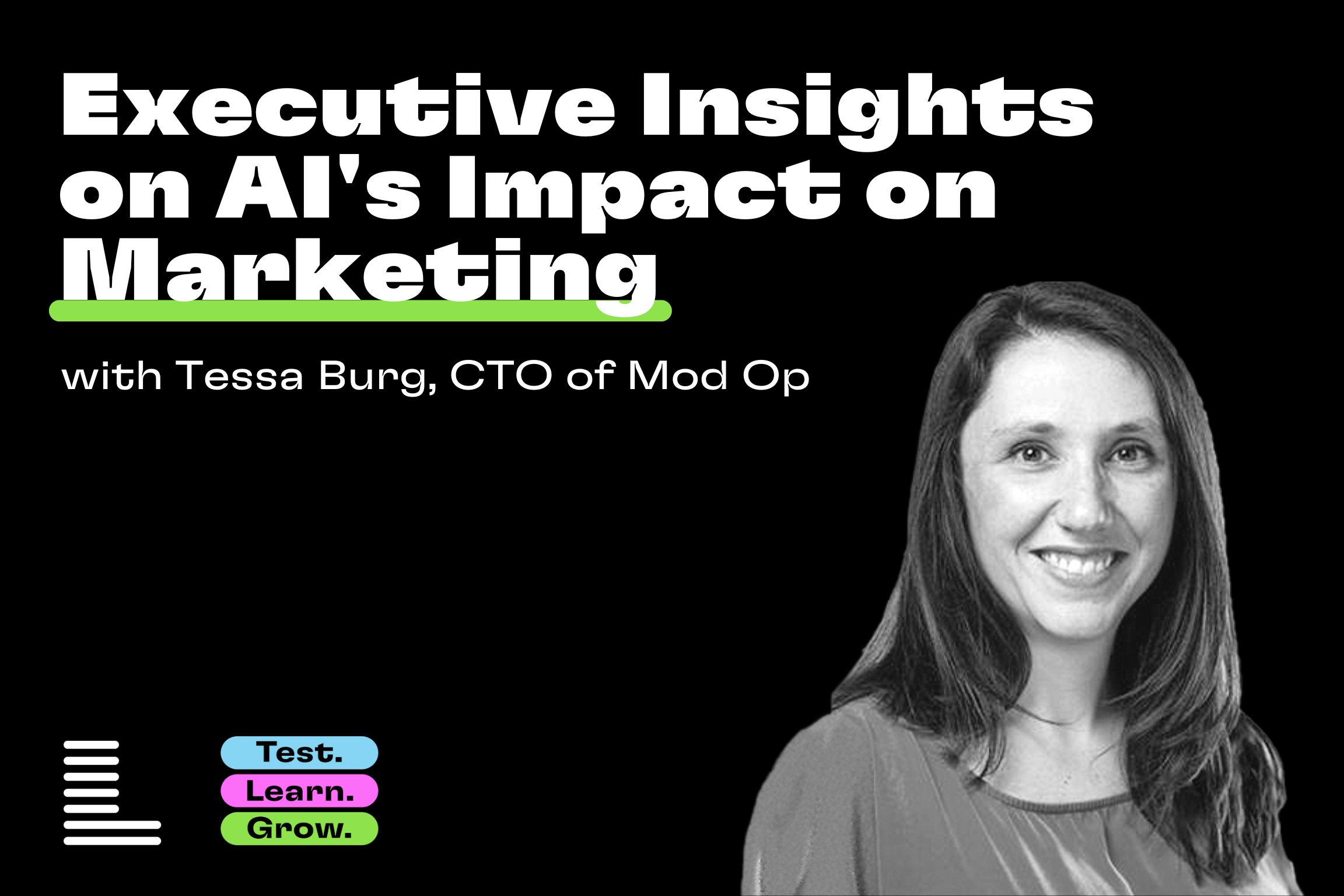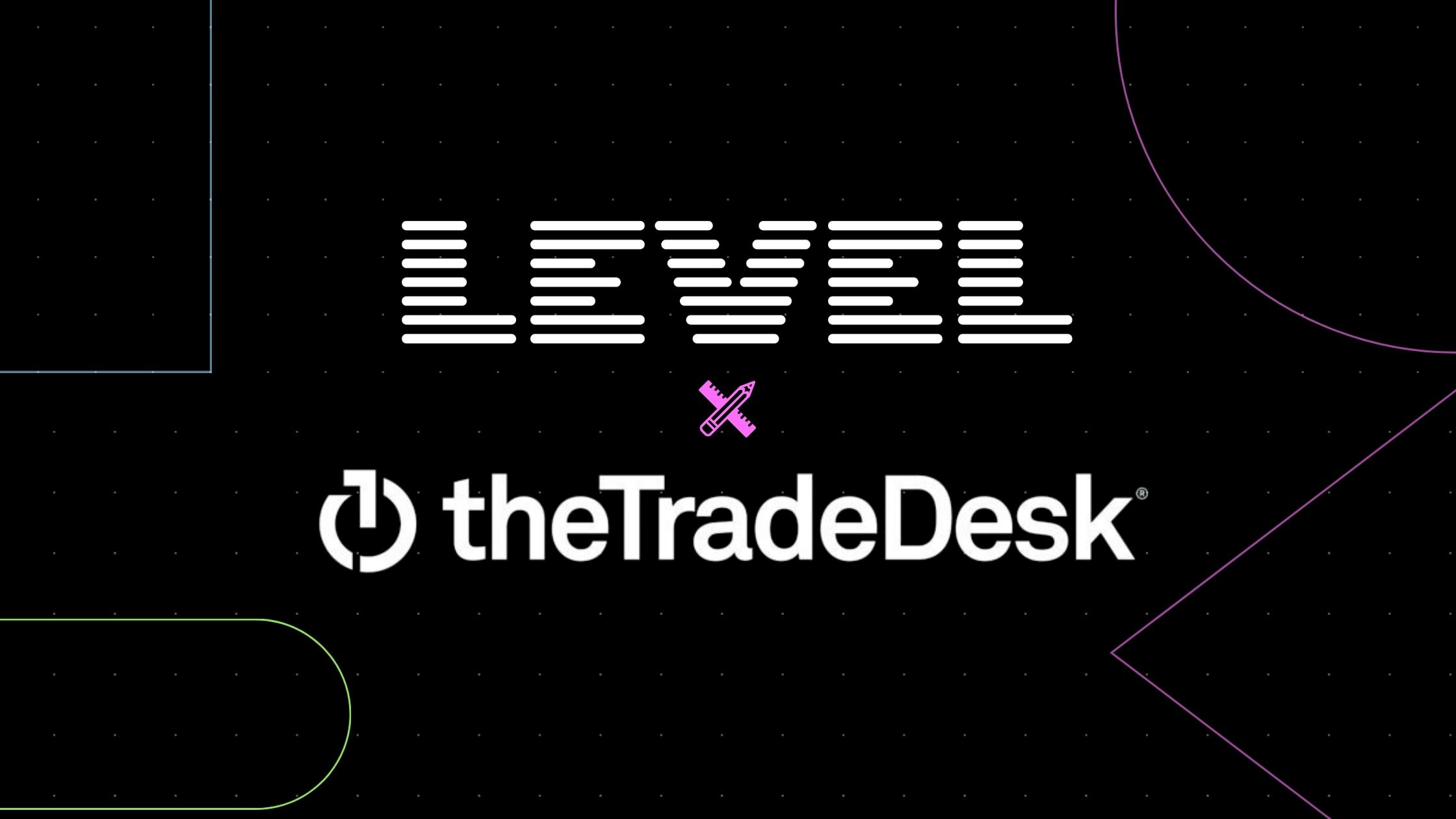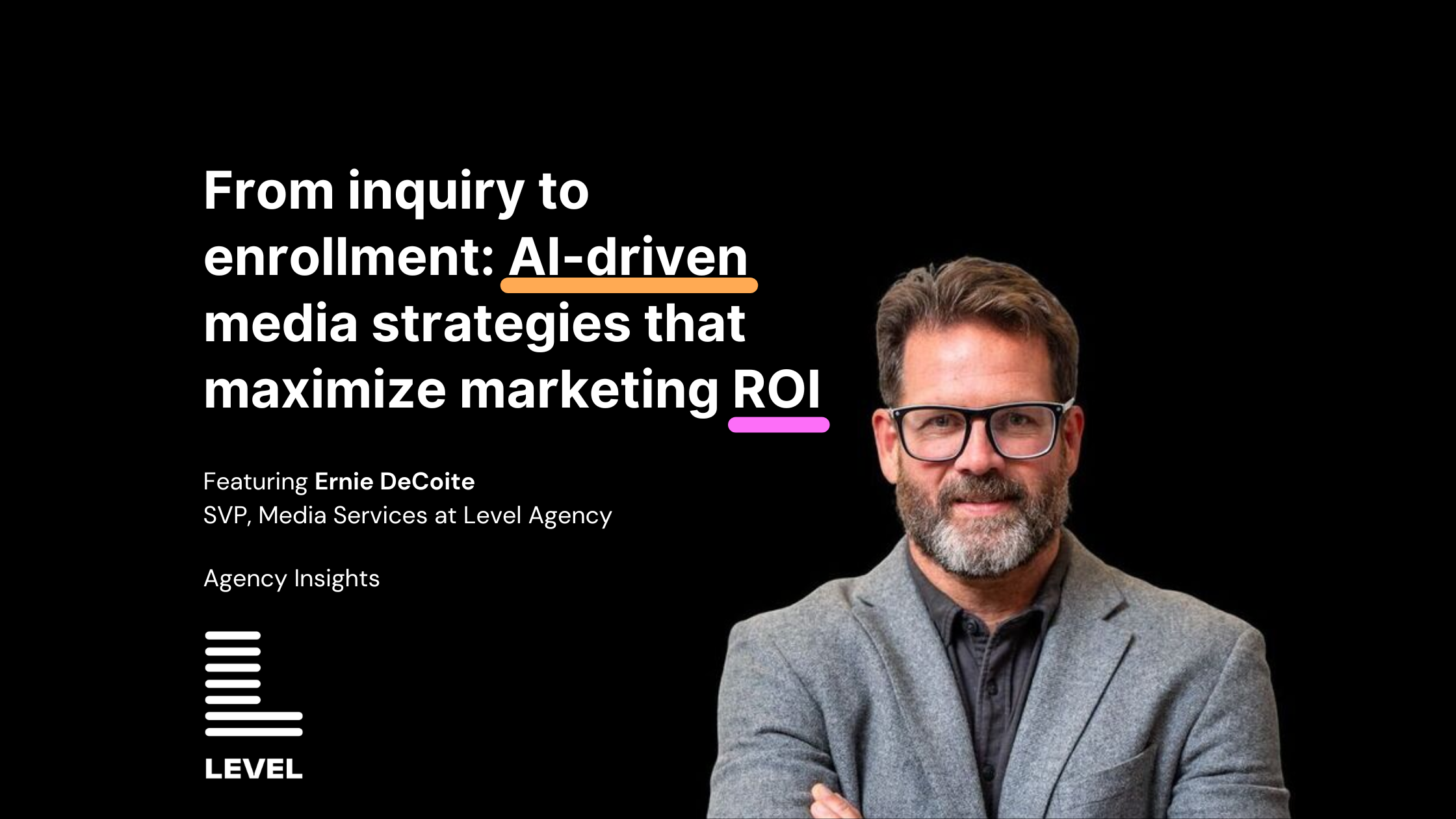Generative AI is Transforming More than Just the Way We Work
How should executives respond to rapid AI adoption?
We recently convened a conversation with two innovative marketing leaders who are early adopters of AI. Generative AI tools like ChatGPT are exploding in popularity and reshaping the way we work. However, if we’re honest, this transformation is early and limited to very few organizations. It raises big questions that aren’t often talked about: How are organizations not only retooling core business processes to drive value — what will the marketing agency business model even look like in 5 years?
These are their takeaways at this relatively early stage in the game.
Experimentation with AI is Critical to Cultural Change
Executives navigating the rise of artificial intelligence would be wise to embrace it as a collaborative tool rather than resist it as a threat. And the best way to find the right modes of collaboration within a given organization is to allow employees to find them. Bear in mind: healthy skepticism is warranted due to the many potential issues with using generative AI. However, banning experimentation out of fear hampers potential progress. Leaders should see AI as an opportunity to enhance human productivity and creativity.
Executives Need to Understand What Gen AI Is (and Isn’t)
First and foremost, education around what AI currently can and cannot do is essential to guide strategy. The technology remains best suited for rote tasks like generating ideas, draft copy, data analysis, translations and more. Without human oversight, its unchecked outputs risk errors, biases and other issues. AI is not ready to wholly build strategies or finalize deliverables without our diligent governance.
Acknowledging those limitations, executives should encourage rigorous but bounded experimentation across business units. Develop straightforward internal policies that empower employees to augment their workflows with AI when beneficial, while enforcing cross-checks that ensure quality control. Lead by example in trying use cases instead of just pontificating on worst-case scenarios.
Talent Management will Change as AI Takes On Routine Tasks
As teams begin streamlining repetitive tasks using AI, previously manual efforts now free up capacity for higher-level strategic work. Maintain an open dialog around redeploying talent as augmentation evolves workflows. AI can not replace human critical thinking and creativity. Your flexible, creative, strategic thinkers will become more valuable throughout this process.
How Valuable is Your Service? AI and Pricing Models
AI efficiency gains will force many leaders to reconsider how they price their services. This pressure comes from several directions. AI will improve the quality, consistency, and accuracy of service delivery, effectively growing the baseline for customer expectations. As AI becomes pervasive, advantages will come less from core content development tasks and more from the contextual strategy and ideation humans overlay atop AI foundations. For marketing agencies, this introduces significant questions in terms of value creation: what should we charge for our services when they’re delivered faster and with more robust deliverables? In theory, they’re worth more. But customer perception may not always align with this.
AI and Cybersecurity – Balancing Risk and Reward
With increased AI adoption, cybersecurity threats emerge alongside exponential capabilities. With data as the lifeblood of AI systems, it absolutely warrants executive attention regarding governance policies, access controls, encryption, and training to mitigate risks. However, take care to not let valid security concerns totally paralyze progress either. Find an equilibrium that satisfies both vigilance and the need for continual innovation.
Last Word
In closing, artificial intelligence presents extraordinary opportunity for organizations poised to exploit it wisely. Marketing agencies are ahead of many other sectors — for now — so our leaders are placed in an interesting position of developing these capabilities while avoiding the many pitfalls that generative AI introduces. However, the lessons are universal: With deliberate education, encouraged experimentation and balanced risk mitigation, the benefits of generative AI can safely enhance human potential at any organization.








